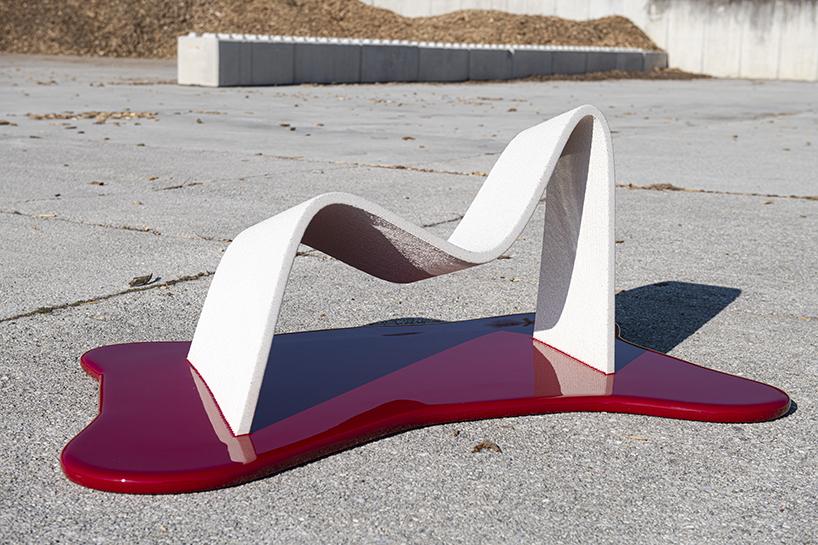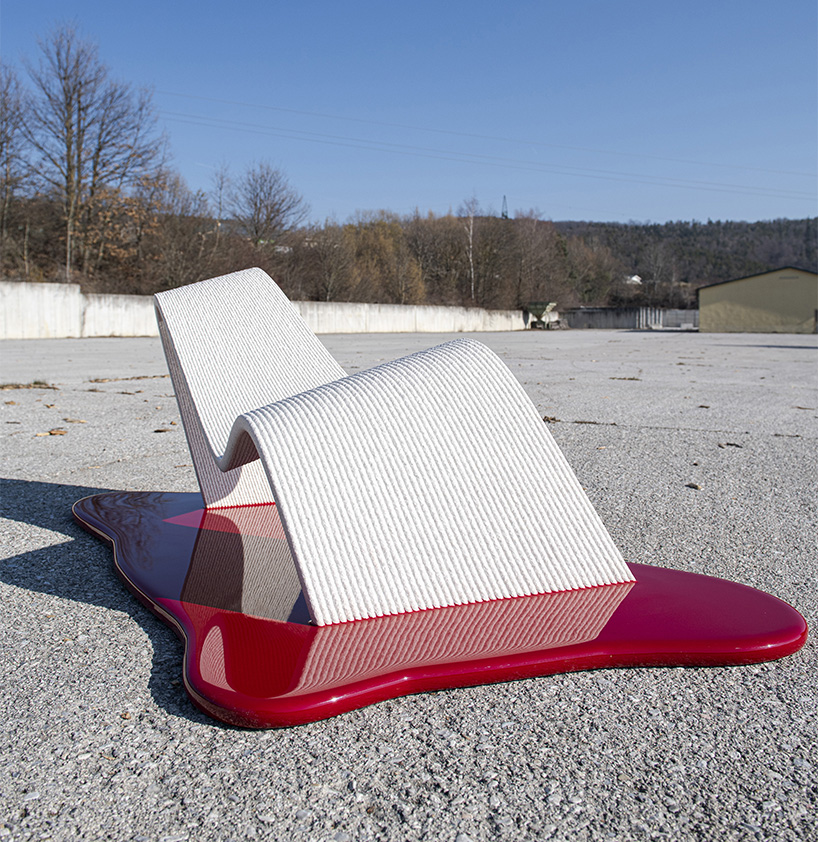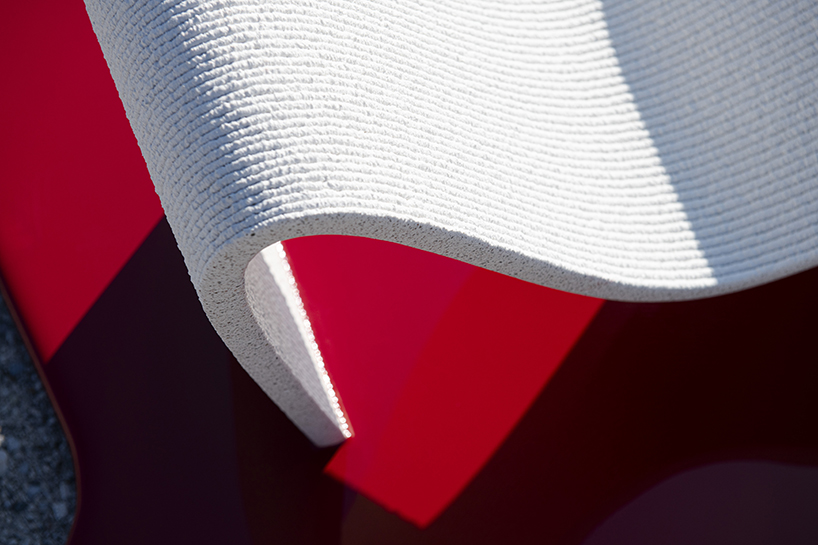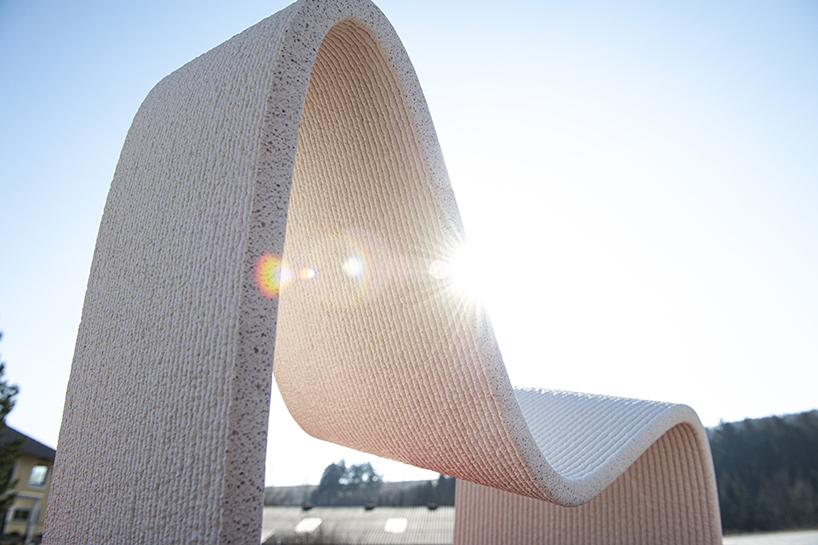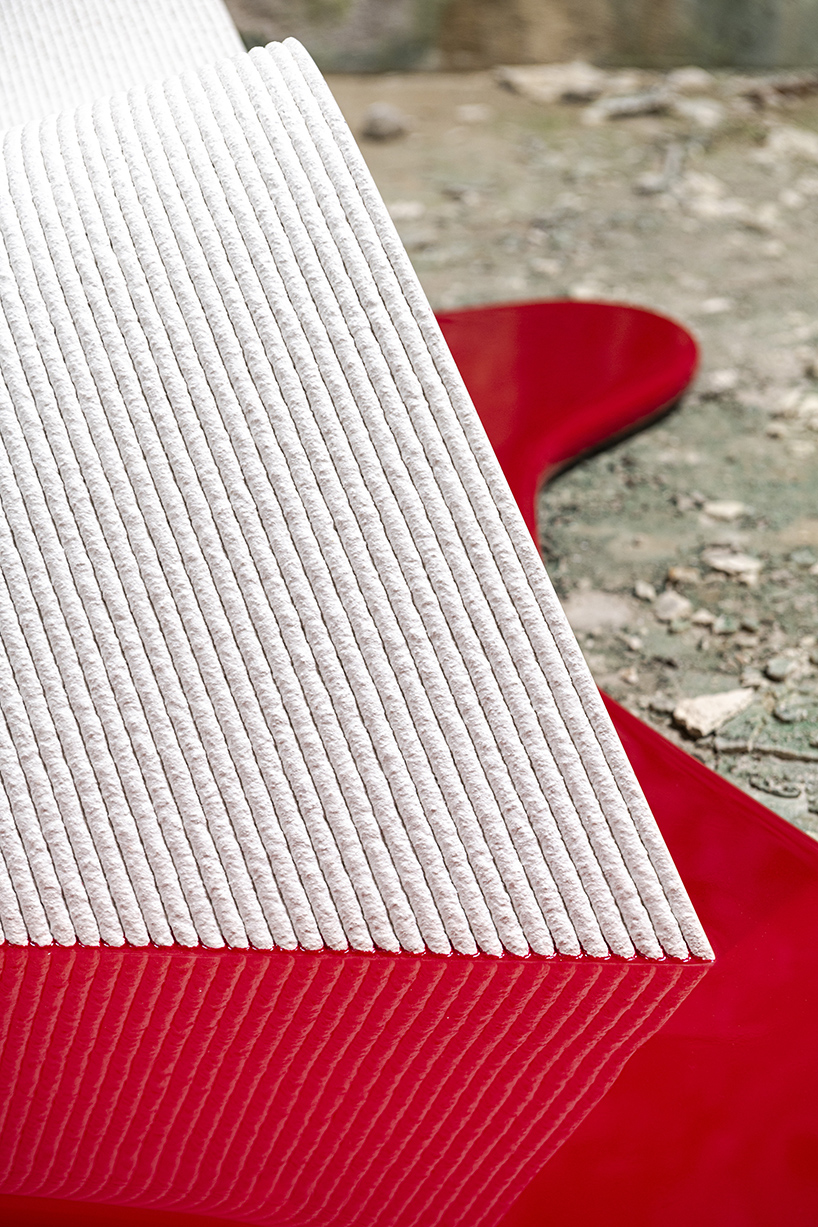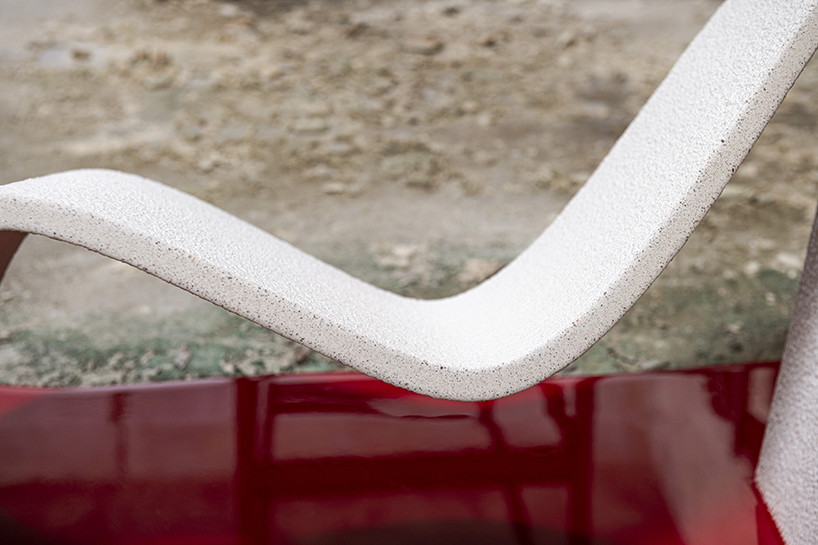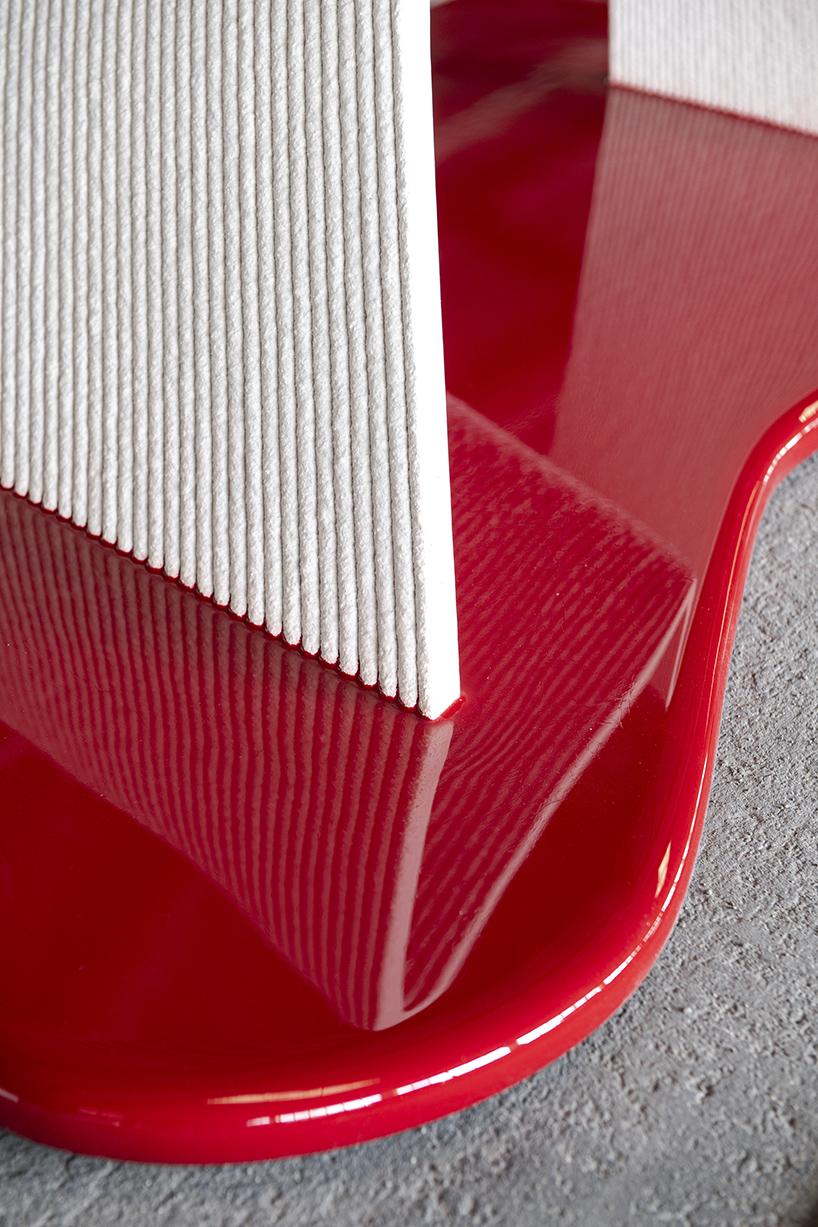[ad_1]
Sinking Chair: A Reflection on Trauma and Resilience
The Sinking Chair, designed by Philipp Aduatz, integrates 3D printed concrete with tinted epoxy resin to create a visual contrast between rigid structure and fluid form. The design gives the appearance of a chair partially submerged in a pool of red, emphasizing the interaction between solid and liquid materials.
Inspired by the visual language of Stanley Kubrick’s The Shining, the piece explores the relationship between architectural geometry and organic fluidity. The concrete chair, with its defined lines, contrasts with the resin base, which creates the illusion of movement and dissolution. The project, presented at Milan Design Week 2025, examines themes of permanence and impermanence, with the rigid material representing stability while the resin suggests transformation.
all images by Paris Tsitsos
Philipp Aduatz experiments with materials for sculptural chair
The production process involves 3D printing the chair in concrete, followed by placement on a base plate composed of wood and glass fibers for structural reinforcement. Designer Philipp Aduatz embeds the chair in a mold, where tinted epoxy resin is poured to encase the structure. Once cured, the surface is sanded and polished to achieve a high-gloss finish that enhances both visual and tactile qualities.
The Sinking Chair will be exhibited at Isola Design Gallery during Milan Design Week, from April 7–13, 2025, at Basic Village, Via Dell’Aprica 12, Milan.
the Sinking Chair combines 3D-printed concrete with tinted epoxy resin
a visual contrast between rigid structure and fluid form
3D printed concrete forms the foundation of the chair
the chair appears partially submerged in a pool of red
a study in architectural geometry and organic fluidity
designed to emphasize the interaction between solid and seemingly liquid forms
concrete lines contrast with the resin’s illusion of movement
[ad_2]
Source link
